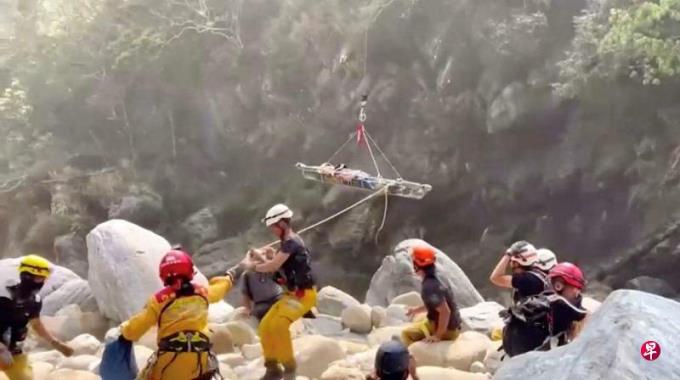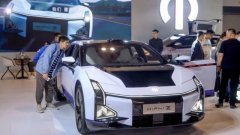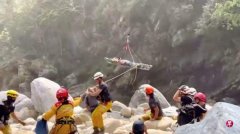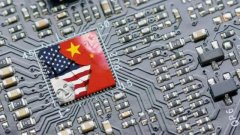
From selling cheap umbrellas to selling high -end chips, it shows the tenacity of Taiwan, but this way is not smooth.In the process, the resistance of reactionary waves and refusal to adjust the adaptation repeatedly appeared.How to smoothly respond to these reactionary resistance is the key to whether "Taiwan's Tough Story" can continue to write.
The magnitude 7.2 strong earthquake at the Richmines in Hualien, Taiwan on April 3, was the highest since the 1999 earthquake in 1999.The scale of the 1992 earthquake is Liga 7.3, and the number of deaths is 2415. In contrast, the number of deaths in this earthquake is about 20.The damage of the Taiwan information and communications industry, which is concerned about the world's attention, is not serious. The semiconductor leader TSMC (TSMC) issued an announcement that night: the recovery rate of the wafer plant has exceeded 70 %, and the restoration rate has reached 80 % the next day; Taiwan's "" Taiwan's ""The Guo Guo Mountain" "did not dump.Infrastructure damage is not serious, and the power system is quickly recovered. This is also an important factor in Taiwan's industry capable of rapid recovery.In the past eight years, Taiwan has continuously improved green energy, gas units, and power grids, and finally showed results on this earthquake.The media of various countries also refer to the toughness shown by Taiwan in the earthquake.
"The story of Taiwan is a tough story -a country that adheres to democracy and progressive value, and at the same time facing the continuous challenge of survival." This is Taiwan Cai Yingwen published an article in the foreign affairs of international relations publications at the end of 2021.A paragraph.At that time, the world was lingering the crown disease. Even if Taiwan was rejected outside the door by the World Health Organization, it was able to accommodate global attention and praise.There is a period of emphasis on the semiconductor industry of Taiwan's semiconductor industry. She said that Taiwan's semiconductor industry is "Taiwan's Silicon Shield" that Taiwan's semiconductor industry protects itself and other countries exempts by dictatorship to destroy the global supply chain. We are tryingThe regional high -end production center plans to further strengthen our role in ensuring the security of global supply chain, which will consolidate our position in the global supply chain.
This kind of tough or toughness comes from the test of the difficult living environment in Taiwan for more than half a century. There are strong rivals on the outside, internal natural resources and market insufficient markets. Taiwanese have "evolved" flexible survivability under these disadvantages.These stories have talked a lot when people talk about the take -off of East Asian economy after the war, and the four little dragon miracles have talked a lot. It is also a fight for the fighting of most people in new, Taiwan, South Korea, and Hong Kong.
"Four Little Dragons" is the story of the last century. In the 21st century, after the rise of China, the political and geographical strategic situation in the Indo -Pacific region and the geographical strategic situation also made Taiwan face new challenges.Taiwan has moved towards a mature economy, and it must be more refined to various new social issues: aging, declining childization, ecological sustainability, diverse value, noise ... The people care more about fairness and justice, but the definition of fairness and justice is notIt is also as clear as the past.Taiwan needs to cultivate a deeper heritage to respond to various more complex and subtle problems in the process of social development -this is soft power.
Many people talk about soft strength and will use the Korean Cultural Content Promotion Institute (KOCCA) to promote the cultural industry, or the Chinese Confucius Institute (also known as the "Ruili Power") as a model.2. Project projects to vigorously promote it.In fact, soft power is a manifestation of multi -oriented capabilities, including the recognition of the free and democratic social system.
As Tsai Ing -wen mentioned in the above article: "Taiwan has obtained additional soft power from professional knowledge and ability in other fields such as education, public health and natural disasters. In these fields, our experts and andThe institution is playing an increasingly important regional role.
Three "chain strength" creates Taiwan advantage
Professor Li Shihui, a professor at the School of International Affairs of Taiwan Politburo and a Ph.D. in Economics, Kyoto University in Japan, pointed out in the book strength of the recent publishing chain that the reason for Taiwan's advantage is that they have three "chain strength" at the same time:The center of the "first island chain"; in the global semiconductor supply chain, Taiwan is irreplaceable and directly affects the direction of scientific and technological competition in the country.Stable partnership.The island chain, supply chain, and democratic chain have formed Taiwan's unique "chain strength", which has also become an important niche for development.In the special status, Taiwan has not only been eliminated in Indo -Pacific geographical transformation and reorganization of the global industrial chain.
The past development model of emerging industries in Taiwan and other after World War II was the government provided various discounts to attract foreign capital, seized the outsourced business opportunities of major countries, and used major countries as the main market.But in recent years, TSMC's examples have been very different. The United States, Germany and Japan have rushed to invest in TSMC.
In 1987, in the Fatal Attraction, the heroine failed to open the umbrella in the wind and rain. The heroine said with a smile: "Is this Taiwan?"Later, it was gradually replaced by "Made in China"; now in Taiwan, Taiwan -related products and services are already a boutique for countries.From the perspective of international political economics, Wu Jiemin, a researcher at the Social Society of the Chinese Academy of Sciences, studied Taiwan semiconductor industry. He said with a smile: "Taiwan has upgraded from Global North from Global South."The north of the world, but because of mainland China, the treatment that Taiwan has received internationally has always been like the southern world.
After the Great Hualien earthquake on April 3, Japanese Prime Minister Kishita Tianshi visited the Kumamoto Plant on the 6th and announced that it would provide more than 1 trillion yen (about S $ 8.860 billion) to the Kumamoto Second Factory this year (about S $ 8.860 billion).Subsidies.When the TSMC Kumamoto Factory opened at the end of February, the Japanese political and business officers gathered. Kishida Wenxiong was not attended by Ishikawa's inspection of the earthquake, but congratulations to the film.On April 8th, TSMC also announced signing a memorandum with the US Department of Commerce.TSMC also plans to build the third wafer fab in Arizona, and TSMC has invested more than $ 65 billion in local investment.
TSMC's investment in the construction of factories in Japan ahead of the United States.With the full support of the Japanese government, Kumamoto Factory rushed to work day and night, and was put into operation in less than two years.The cooperation between Taiwan and Japan in the semiconductor industry this time is of great significance.The Japanese government regards it as the key to driving the revival of the semiconductor industry.The Japan semiconductor industry, which was originally led by the world in the mid -1980s, was stunned under the square agreement in 1985 and the US -Japan semiconductor trade agreement the following year. Today, Japan attempts to join Taiwan to rebuild the semiconductor territory and drive the relevant technology industry.This is a major change in East Asia's development experience. In the past, the development path depicted by the "geese theory" was that Japan's geese moved forward with other small geese in East Asia, and now it is Taiwan -Japan parallel and even Taiwan's technology lead.
Taiwan society is biased towards "restoring normal" instead of system transformation
From selling cheap umbrellas to selling high -level chips, it shows the tenacity of Taiwan, but this way is not smooth.After the Hualien earthquake, Dai Xingyheng, an economist at Donghua University in Taiwan, said on Facebook that toughness refers to the response when the social ecosystem encountered interference.There are two types of response. One is to reply to the original system operation mode, and the other is to recognize that there are serious problems with existing systems, and system transformation to operate better."My observation is that the understanding of toughness in Taiwanese society is mainly the first type of the aforementioned. The focus is on how to quickly restore the system operation." Dai Xingsheng pointed out that Taiwan is facing major systems such as climate change or foreign invasion threats to threatening threats to the threat of foreign enemies.In the impact of sexual changes, most of them are holding the ostrich mentality and unwilling to expand system transformation.
Facing climate changeWhen the problem of relocation must be transformed by energy, Taiwan encounters a lot of resistance. The government's efforts to promote green energy are often criticized and blamed the power shortages to abolish the nuclear power.As for the increase in military threats in mainland China, many Taiwanese are also reluctant to face the security crisis and strengthen the security toughness.
Of course, Taiwan is not unprecedented in system transformation, otherwise the power system will not be able to successfully respond to the challenge of this earthquake, and the information and communication industry will not still occupy a key position in the global supply chain reorganization.But in the process, the resistance of reactionary waves and refusal to adjust the adaptation did have repeatedly appeared.How to smoothly respond to these reactionary resistance is what Cai Yingwen said whether the "Taiwan Tough Story" can continue to write.
The author is a columnist in Taiwan




